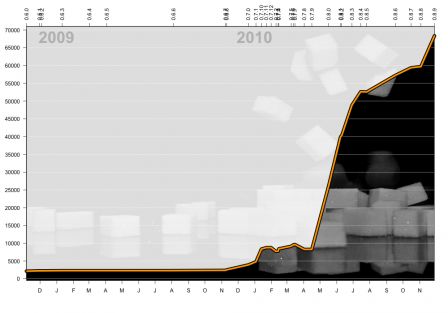Overview
This year's R/Finance conference will be
preceded by a full-day masterclass on Rcpp and related topics which will be
held on Thursday, April 28, 2011, the Univ. of Illinois at Chicago campus.
Join Dirk Eddelbuettel and Romain Francois for six hours of detailed and
hands-on instructions and discussions around Rcpp, inline, RInside,
RcppArmadillo and other packages---in intimate small-group setting.
The full-day format allows to combine a morning introductory session with a
more advanced afternoon session while leaving room for sufficient breaks.
There will be about six hours of instructions, a one-hour lunch break and
two half-hour coffee breaks.
Morning session: "A hands-on introduction to R and C++"
The morning session will provide a practical introduction to the Rcpp
package (and other related packages). The focus will be on simple and
straightforward applications of Rcpp in order to extend R and/or
to significantly accelerate the execution of simple functions.
The tutorial will cover the inline package which permits embedding of
self-contained C, C++ or Fortran code in R scripts. We will also discuss
RInside to embed R code in C++ applications, as well as standard Rcpp
extension packages such as RcppArmadillo for linear algebra and RcppGSL.
Afternoon session: "Advanced R and C++ topics"
This afternoon tutorial will provide a hands-on introduction to more
advanced Rcpp features. It will cover topics such as writing packages that
use Rcpp, how 'Rcpp modules' and the new R ReferenceClasses interact, and
how 'Rcpp sugar' lets us write C++ code that is often as expressive as R
code. Another possible topic, time permitting, may be writing glue code to
extend Rcpp to other C++ projects.
We also hope to leave some time to discuss problems brought by the class
participants.
Prerequisites
Knowledge of R as well as general programming knowledge; C or C++ knowledge
is helpful but not required.
Users should bring a laptop set up so that R packages can be built. That
means on Windows, Rtools needs to be present and working, and on OS X the
Xcode package should be installed.
Registration
Registration is available via the R/Finance conference at
http://www.RinFinance.com/register/
or directly at RegOnline
http://www.regonline.com/930153
The cost is USD 500 for the whole day, and space will be limited.
Questions
Please contact us directly at RomainAndDirk@r-enthusiasts.com














